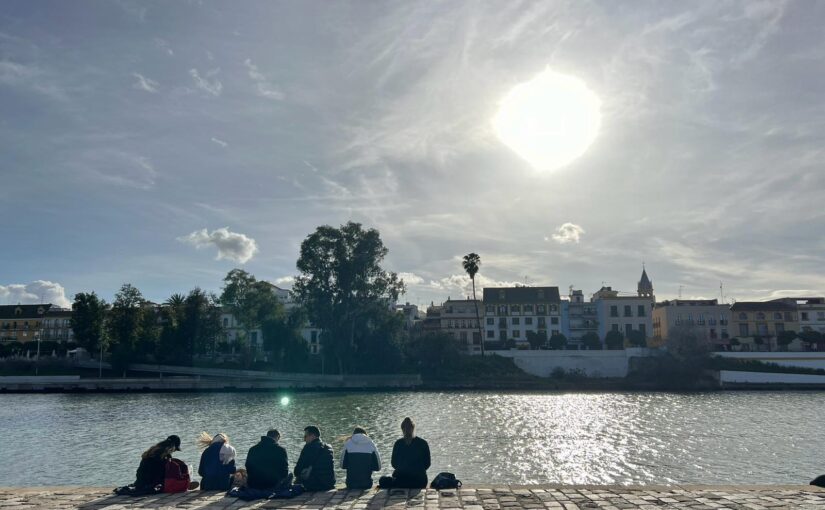Field of study in Wageningen: Bachelor Business and Consumer Studies
Study period exchange: 01/01/2024 – 30/06/2024
Country (exchange): Spain
City (exchange): Madrid
University (exchange): Universidad Autónoma de Madrid
Faculty (exchange): Facultad de Ciencias Económicas y Empresariales
2. Motivation for exchange
Why did you choose to go on study exchange?
I have been living in Wageningen my whole life (I grew up there and stayed for university) so wanted to experience what it’s like to live in another place. Madrid seemed perfect for me to experience something very different than Wageningen and also to learn a lot about other cultures and living abroad.
What is the reason you chose for this country?
Spain to me seemed like the perfect country for an Erasmus exchange. There is a lot to see and visit in Spain, the weather/food/prices are very good and there are a lot of other exchange students. My main reason though was to improve my Spanish and reach a more fluent level than I had before.
What is the reason you chose for this university?
I did not particularly choose this university, it was just the only one offered for my degree in Madrid, so that was the main reason.
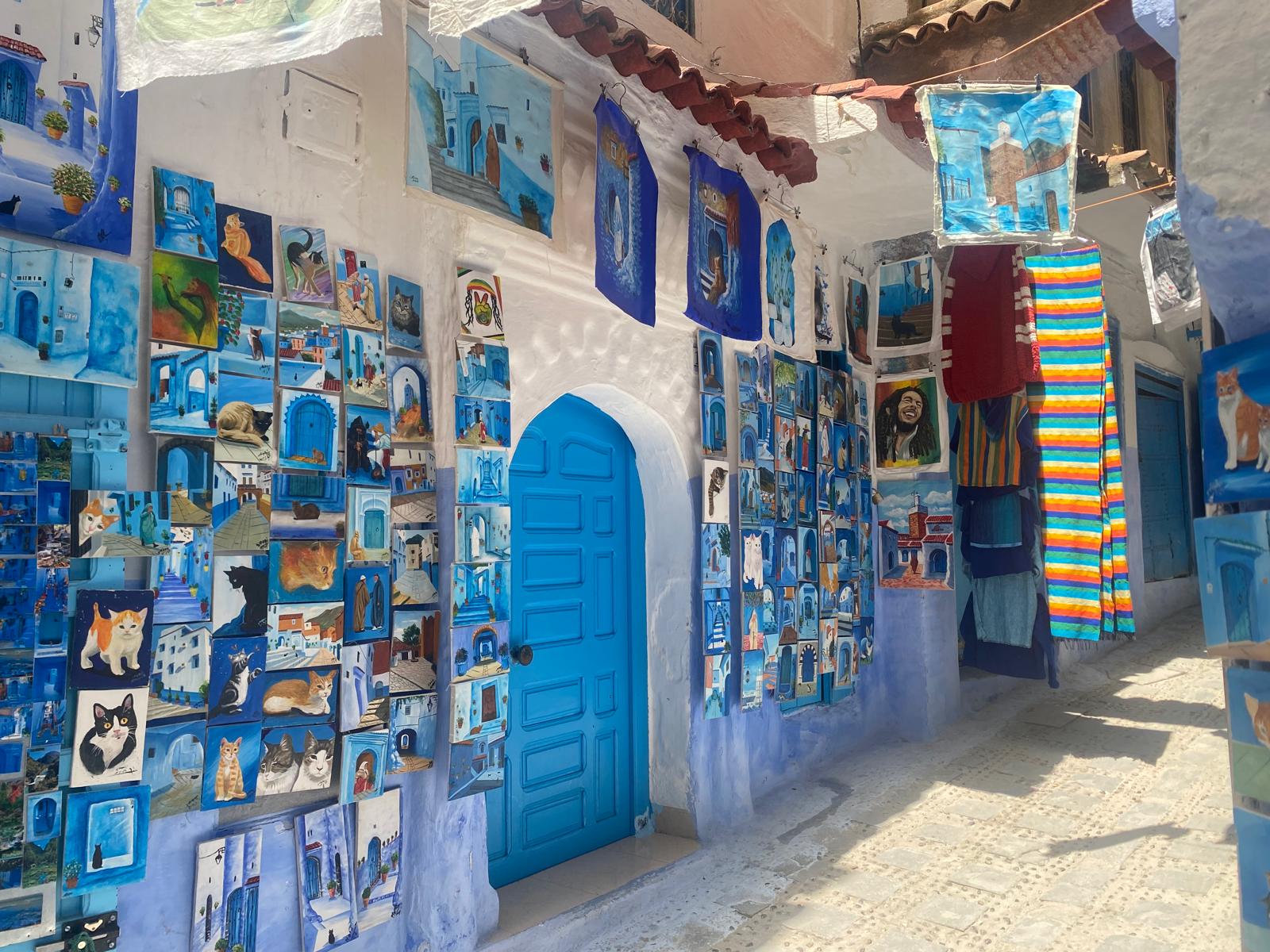
3. Accessibility to reach destination
Do you have any advice about reaching your exchange destination?
I flew to Barcelona from Amsterdam for vacation and then took the AVE (train) to Madrid, which only took 2 hours. But it’s also easy to go to Madrid directly, there are a lot of flights. I’ve also looked into busses but in the end that was more expensive and took a lot of time.
4. University and studying
Could you provide some general information about the followed courses?
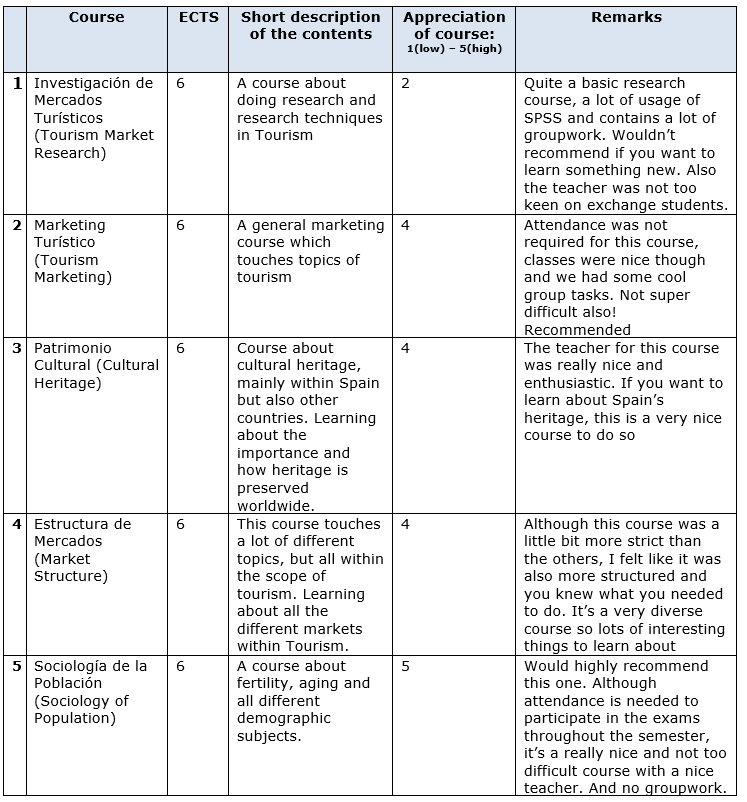
I had sufficient possibilities to select suitable courses that were taught in English:
The courses in English are very limited, but it differs per faculty I think. All of my courses were in Spanish and I know a lot of my friends at university also had at least one course in Spanish. There were some English courses I could have followed, but decided not to as I thought the offered courses were not so much in my field of interest (econometrics and finance were the English courses). So eventually chose to do all of them in Spanish, which was difficult at times (especially during exam period, it takes longer to study and memorize things) but also very rewarding as you gain a lot of knowledge of the Spanish language. And in the end I passed everything, even with having to do written exams in Spanish (I could use my paper dictionaries).

Don’t let it scare you – I was also absolutely not fluent and still managed with enough motivation. Often you’re not the only non-native speaker in class, as there are a lot of exchange students too. And if you want to do everything in English I’m pretty sure there are possibilities and you can take courses from other faculties.
I had sufficient possibilities to select suitable courses in my field of interest:
When I changed my preferred language to Spanish (Castellano) – yes. I knew I wanted to do a minor in Tourism and as there was a Tourism degree, I took almost all of my courses from that degree and had most of my courses with the same students.
I am satisfied with the level of the courses that I followed:
Beforehand I was told that the level in Spain and Madrid was very easy and you did not have to do anything, but that was not really my experience. Autónoma is ranked as one of the highest universities in Madrid and I felt like the level was very different between the courses I had. Some were very strict (75% correct in the exam for a pass, 5/10) and others were not as strict. And of course having to do it in Spanish also made things harder, which meant that I did have to do study to pass my exams. But in comparison to WUR it’s still easier. Furthermore I had some weeks where I would have multiple midterm exams (so exams outside of the exam period), which were often announced a few days before and could result in some stress. But in hindsight it was never really needed to stress about it, everything will be fine. I noticed that a lot of exchange students only had 1 or 2 courses, which meant that in comparison to them, I had to go to class a lot because I had 5 courses.
I am satisfied, in the end, with the selection of courses I followed:
Yes. I liked most of my courses and in the end it was not too hard to pass them. Also it was a good indication for me to decide in what subject I wanted to do my master’s in (as that would be my next step after exchange).
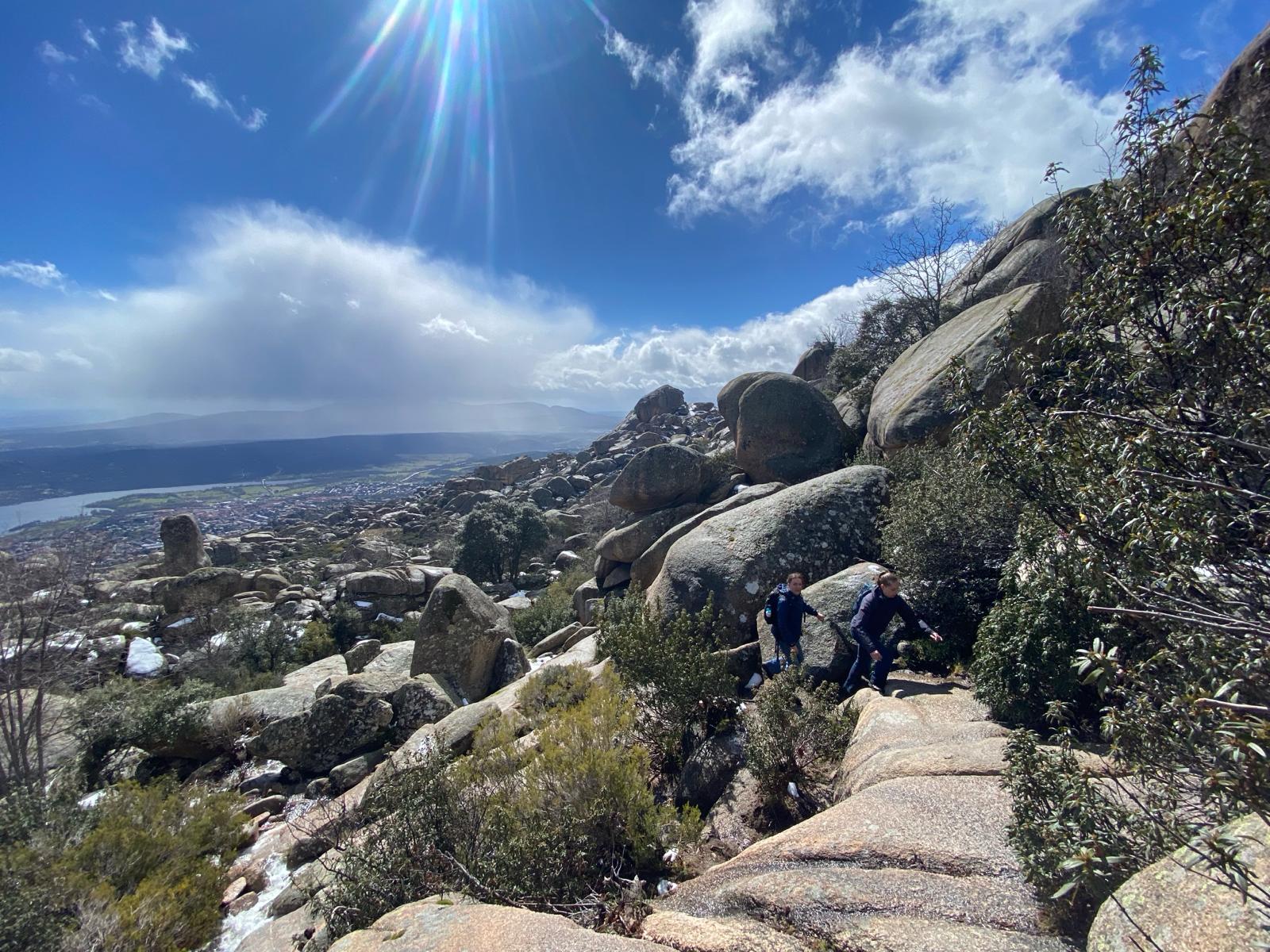
What is it like to study there?
Every day I had 4 hours of class, from 16:00 to 20:00. Each class was scheduled to be 2 hours, but most of the time you had some time before going to the next class. For my courses I had a lot of exams, almost every week, but they were small ones which only count for 2% of the final grade. I didn’t always know that beforehand, though. In general it’s less structured than WUR for example. For some courses you can choose to do the midterm examination, which means if you passed that you don’t have to show up for the final exam. At the end of the semester you would have to present the groupwork you did in front of the class in Spanish (if you’re doing classes in Spanish of course). That was quite stressful but in general people are understanding.
What is the culture of the university?
It differs per lecturer, but I experienced them to be quite informal. I had one professor who did not really like exchange students who were not fluent in Spanish, the art in that is not to care and just continue. But others were very helpful and gave me extra time to finish the exam as I read slower or were really engaged in helping me understand as well as possible. I did have engagement with local students, which is pretty rare if I heard others around me. Just a handful though, but that was enough! They did not speak any English so I have to talk to them in Spanish, luckily they were very patient with me. It is of course a Spanish university so it’s not unusual if teachers or students arrive late, don’t communicate well enough that a class is cancelled, an exam is postponed or when your professor walks out mid-class to have a chat with other teachers. That’s the biggest difference with WUR I would say, communication.

What does the university offer students additionally?
There’s a big canteen at Plaza Mayor (Campus Plaza Mayor) which offers menu del día for 6 euros. You get 2 main dishes, a bread and dessert so it’s really cheap. Me and my friends often did this whenever we were having a lunch break and it was always very nice. I did not make use of the sport/laundry facilities.
5. Housing-traveling-living
What are the possibilities for housing?
I know some exchange students lived in a student residence on campus, but in general I would not recommend doing that as it’s far from the centre. The university recommends companies, like HelpHousing. I got my room there at Calle de Preciados right in the centre of Madrid and lived with ten other Erasmus students. Everyone really has their own lives and especially in Spain: their own schedules, so it’s different from living in Wageningen where the schedules are much more similar and it’s easier to plan things with your housemates.
What is the culture like?
Spanish culture is as you would expect. The life is a little slower (people walk a lot slower), punctuality is not really a thing here. If you arrive an hour late that’s perfectly normal. People have dinner anywhere between 20 and 24, life mostly takes place outside on the streets with drinks. In terms of manners, people are a little bit more physical and expressive than Dutch people are in general in my opinion. While doing groceries it’s not unusual if employees have nicknames for you (calling you pretty for example), which would be interesting in NL but in Spain that’s very normal. In Spain, people in general also maintain less of a distance and are very physical and close to each other, which I had to get used to at first.
Could you give some information about public transport infrastructure?
The public transport in Madrid is very good and cheap. You’d have to make an appointment at one of the offices in the metro stations to get your own personal transport card and from then on it’s 8 euros per month for people under 25. From Sol (where I lived) I could take a direct train to university, which took 30-40 minutes. Although you had to go at least one hour before your class started as those trains (Cercanillas) were not always the most reliable and don’t have fixed departure hours.
6. Expenses
Can you give an indication of your expenses for/during your exchange?

The price levels were in general [higher; lower; equal] in comparison to in the Netherlands:
It’s cheaper than in the Netherlands, especially public transport.
Additional remarks regarding expenses?
I expected the Erasmus grant to cover a lot of the expenses, and it does, but I still underestimated all the costs I was going to make during exchange.

7. Free time
What are must-sees in the area?
Uf a lot of them! To list some of the places that I’ve been to: Granada (buy tickets for the Alhambra way in advance), Córdoba, Sevilla, Salamanca, Valencia (especially during las Fallas), Ávila, Bilbao, San Sebastian, Barcelona, Burgos, Ibiza, Formentera, Gran Canaria, Cádiz… and also Morocco (Tanger, Chefchaouen and Fes). The flights to Gran Canaria and Morocco are very cheap (15 euros), so definitely visit those places while you still live in Spain. Trains and busses are also relatively cheap if you book them in advance. Especially the trains (AVE or Iryo) are a very fast way to get around.
What does not appear in a travel guide, but is definitely worth seeing/doing?
Me and my friends did a road trip through Extremadura, which is a province no one goes to but is really beautiful! Especially Mérida and Cacéres. And something more close, I’d go hiking almost every weekend (it’s very easy to go to the mountains with your transport card) and I really enjoyed hiking in Manzanares el Real, very beautiful rock formations.
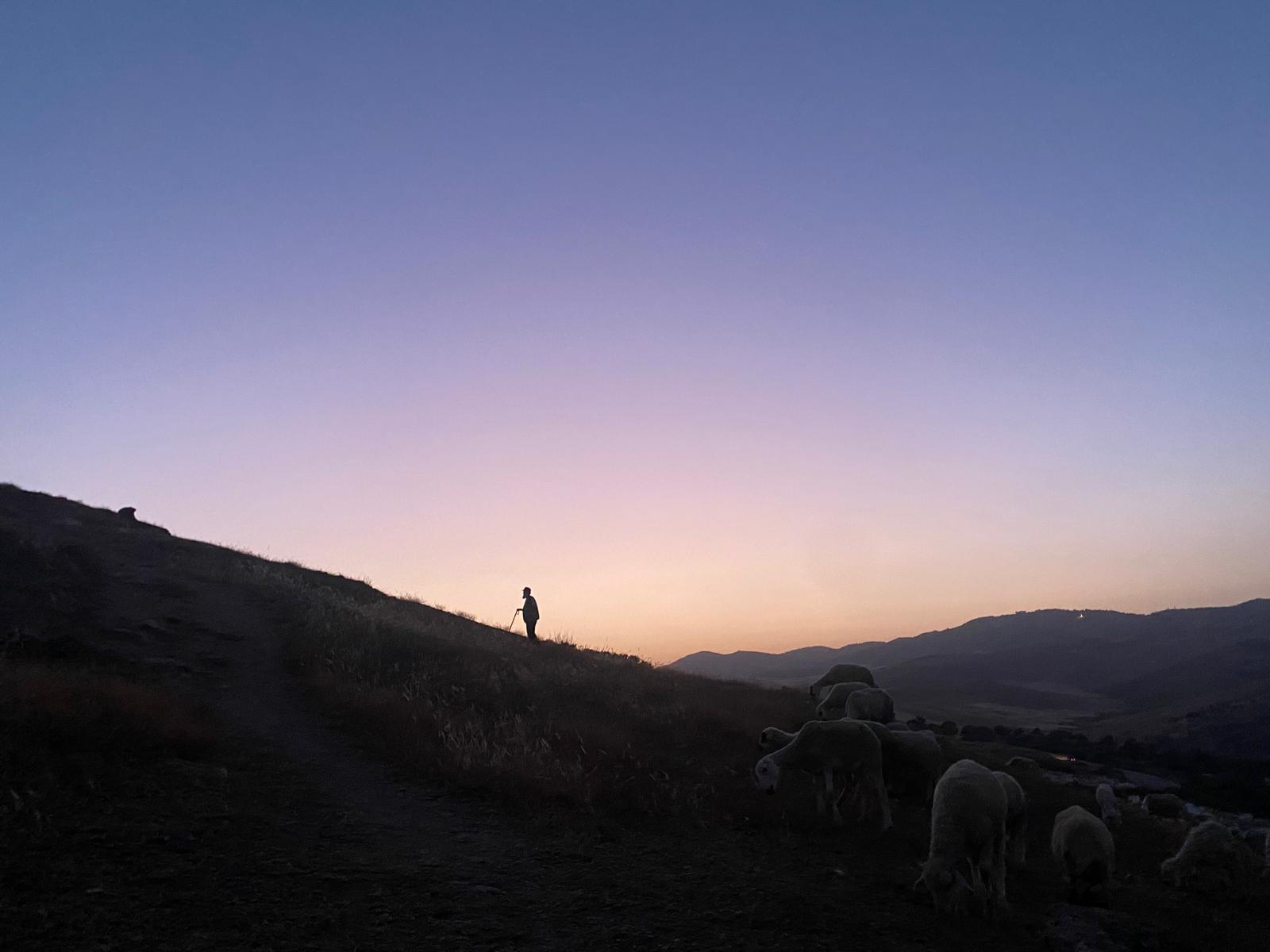
8. Challenges & best moment abroad
Any challenges? How did you deal with them?
I did experience several challenges, starting with arriving during Christmas, more than a month before uni started. That was challenging because there were not a lot of students in the city at that time. I would recommend arriving a week before but not much more than that. Furthermore doing my classes in Spanish was a real adventure and definitely worth it, but also comes with its challenges and it can be difficult not be too hard on yourself if you have trouble with understanding. And in general just missing family and friends.
Best memory?
So many! All the places that I listed above I made great memories, but also Madrid is just great to live in. I think in general just connecting with the local people on my trips and seeing my Spanish improve more every day. And of course all the friends you make along the way. You will experience so many things that it’s really necessary to put things on paper so that you won’t forget and you’ll be able to relive the memories! A lot of my friends chose the ESN Ibiza trip to be their best memory, which was also super nice.
8. Contact Details
Would you like to ask Viva more questions about her exchange?
Send her a mail: viva.schut@wur.nl

